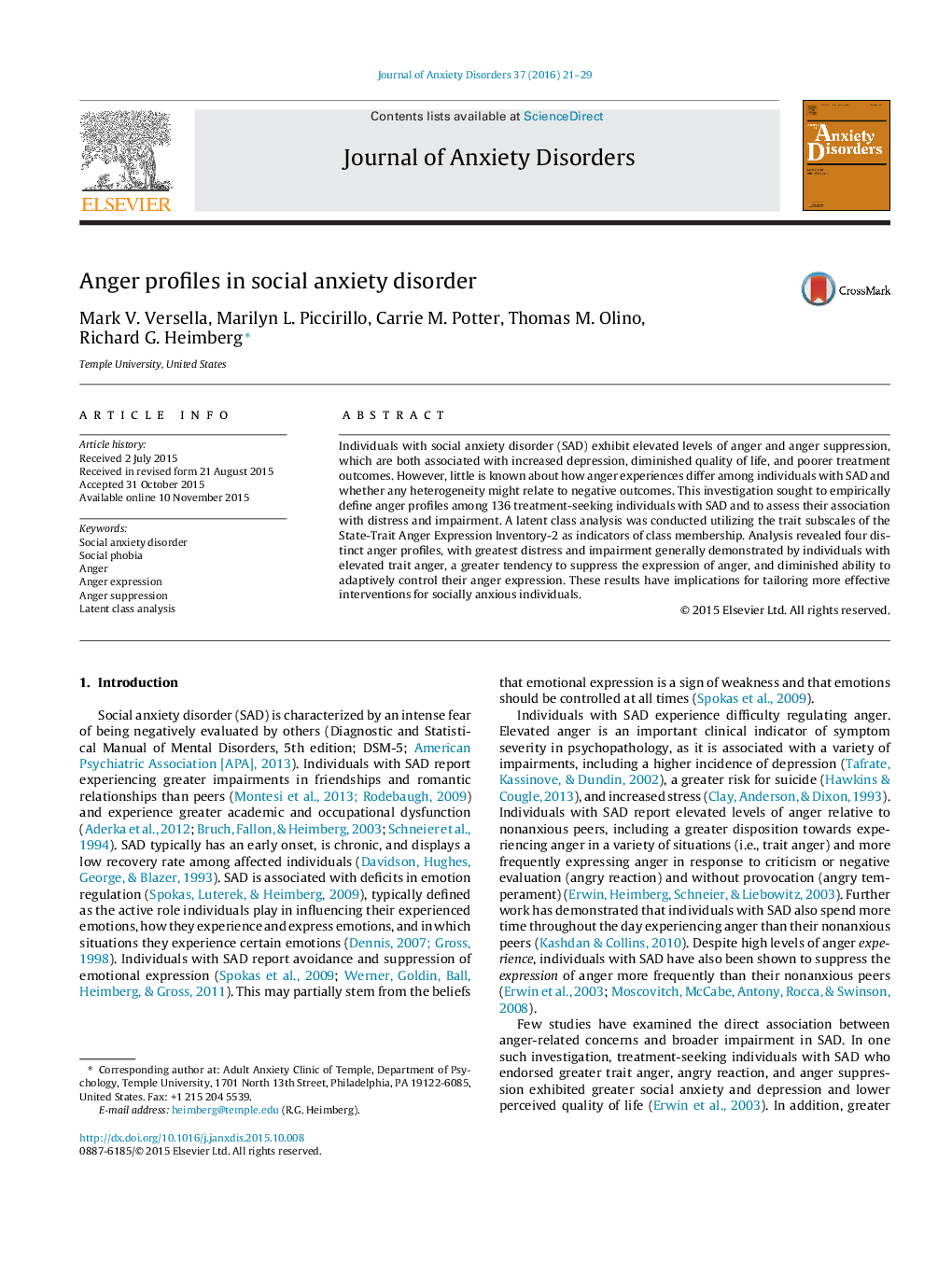| Article ID | Journal | Published Year | Pages | File Type |
|---|---|---|---|---|
| 909221 | Journal of Anxiety Disorders | 2016 | 9 Pages |
•Individuals with social anxiety disorder (SAD) exhibit elevated levels of anger.•There is variability in the experience/expression of anger among persons with SAD.•Latent class analysis revealed four anger profiles in a sample of persons with SAD.•Profiles differed on measures of distress and impairment.•Findings have implications for the tailoring of interventions for persons with SAD.
Individuals with social anxiety disorder (SAD) exhibit elevated levels of anger and anger suppression, which are both associated with increased depression, diminished quality of life, and poorer treatment outcomes. However, little is known about how anger experiences differ among individuals with SAD and whether any heterogeneity might relate to negative outcomes. This investigation sought to empirically define anger profiles among 136 treatment-seeking individuals with SAD and to assess their association with distress and impairment. A latent class analysis was conducted utilizing the trait subscales of the State-Trait Anger Expression Inventory-2 as indicators of class membership. Analysis revealed four distinct anger profiles, with greatest distress and impairment generally demonstrated by individuals with elevated trait anger, a greater tendency to suppress the expression of anger, and diminished ability to adaptively control their anger expression. These results have implications for tailoring more effective interventions for socially anxious individuals.
